Nikki Haley and Vivek Ramaswamy Can’t Escape GOP Racism
The two presidential candidates are boxed in by the bigotry they deny exists.
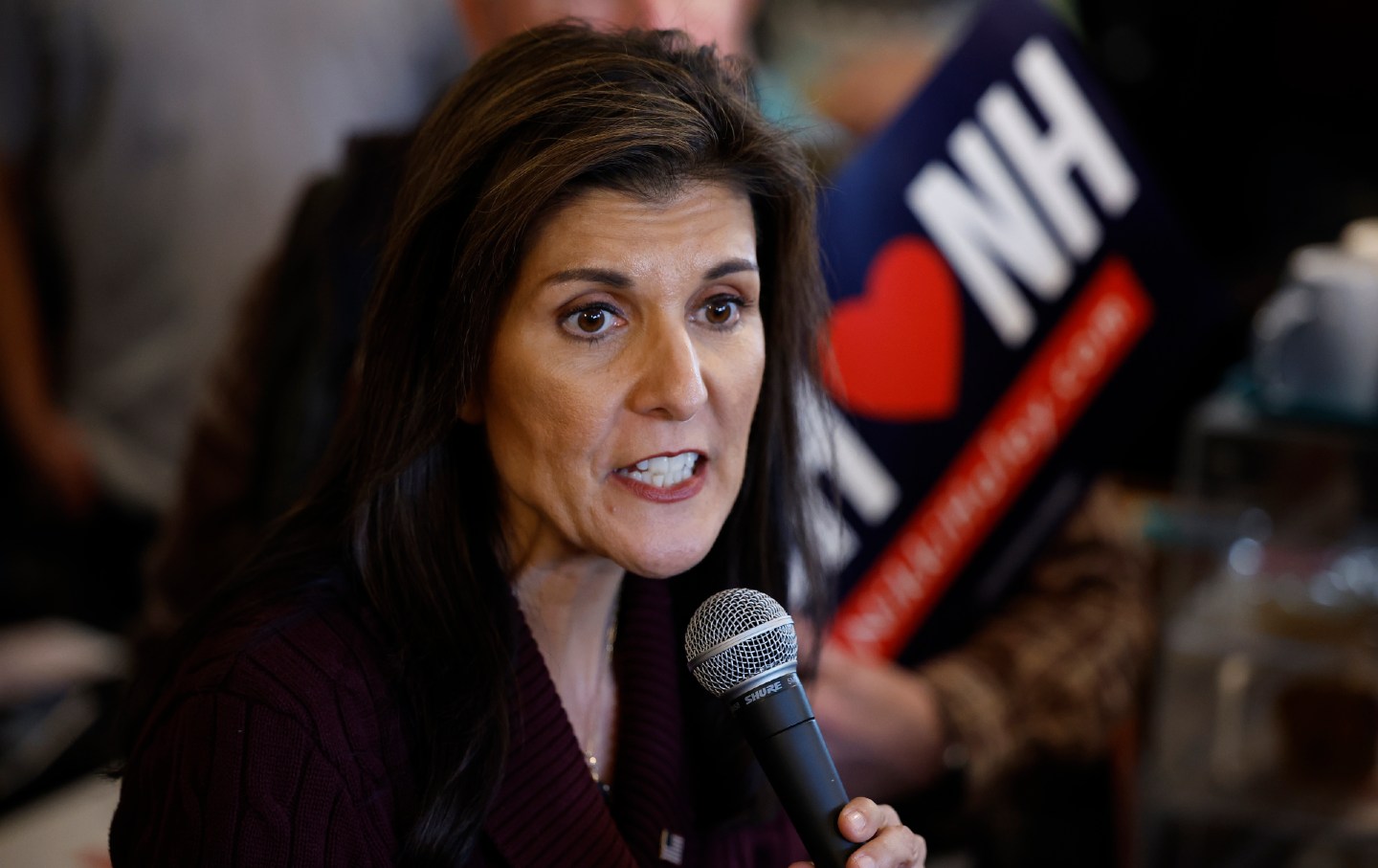
Vivek Ramaswamy and Nikki Haley are political rivals who represented putatively different wings of the Republican Party when they competed against each other for the Republican presidential nomination. But, as Indian Americans, both have been trapped by the same racist bind that has hampered previous people of color who have aspired to the GOP presidential nomination.
Ramaswamy dropped out of the Republican race on Monday after a poor showing at the Iowa primary, where he received 7.7 percent of the vote. He immediately and loudly endorsed Donald Trump—hardly surprising, since Ramaswamy ran as Trump enthusiast who hoped to be the former president’s political heir. Haley did slightly better in Iowa, where she got 19.1 percent, a far cry from Trump’s 51 percent, but enough to keep the former South Carolina governor in the running for a few more races. Haley hasn’t wrapped herself around Trump the way Ramaswamy has. She’s positioned herself as the rallying leader of the older brand of conservative Republicans who are wary of Trump, although, if Trump is the nominee, she’s promised to back him.
Yet the differences between Ramaswamy and Haley are more a matter of tone than of substance. At the end of the day, Ramaswamy’s loud cheerleading of MAGA is just a more honest version of the muted complicity of Haley and other establishment Republicans, who are willing accomplices to Trump when he’s in power. Haley, after all, served as Trump’s UN ambassador, displaying diligent agreement with Trump’s foreign policy.
On the issue of racism, Ramaswamy and Haley also have the same message—albeit again in slightly varied timbres. Ramaswamy is brash, Haley genteel, yet they end up both advocating the standard right-wing anti-anti-racism, claiming that structural racism is a thing of the past and efforts at addressing the legacy of historic bigotry are themselves racist.
In December, Ramaswamy was asked in Iowa if he thought there should be any redress for structural racism. He responded: “Was there a time and place for correcting for those past injustices? Yeah, it was like in 1870.” The candidate added, “But at a certain point in time, I think that what you would think of as racism in this country—or you can fill in the blank, sexism or any other -ism or form of discrimination—it gets to be small enough, not to be zero, but small enough that the best thing we can do is let it atrophy to irrelevance.”
On Tuesday, Haley appeared on Fox and Friends, where she was shown a clip of MSNBC host Joy Reid saying that “the elephant in the room” is that Haley “is still a brown lady that’s still got to win in a party that is deeply anti-immigrant.” Drawing on a frequent theme of her campaign, Haley argued that her personal history demonstrates that racism is irrelevant. Haley described herself as “a brown girl that grew up in a small rural town in South Carolina who became the first female minority governor in history, who became a U.N. ambassador and who is now running for president.”
Fox host Brian Kilmeade asked Haley, “Are you involved in a racist party?” The candidate responded, “No. We’re not a racist country, Brian. We’ve never been a racist country.” Haley added, “I know I faced racism when I was growing up. But I can tell you, today is a lot better than it was then.” Later, a Haley spokesperson clarified by saying the candidate believes “America has always had racism, but America has never been a racist country.”
Ramaswamy and Haley have each crafted a political identity that rests on the repeated assertion that racism is merely an antiquated private misbehavior rather than a shaping structural reality. While anti-anti-racism is a pillar of right-wing politics, it tends to be most often voiced by people of color courting GOP voters. This is the tradition of Alan Keyes, Herman Cain, Bobby Jindal, and Ben Carson as well as Ramaswamy and Haley. One notable thing about this tradition is that, while it may be a good way to get attention, none of these candidates, to date, have been able to go the distance and get the presidential nomination.
Joy Reid’s analysis was spot-on. The same Republican electorate that loves to applaud people of color saying there is no racism is itself too racist to nominate these candidates. This is the bind Ramaswamy and Haley find themselves in.
To disprove the claim that America has “never been a racist country,” all one has to do is look at how Republican voters, the media, and other politicians treat Ramaswamy and Haley.
NBC reports that in the days before the Iowa caucus, Apoorva Ramaswamy, the wife of the candidate faced “questions” that “made clear that despite holding nearly 300 events in the state, more than any other presidential campaign, a number of Iowa Republicans still have questions about the Ramaswamys’ faith, nationality and race, though he has addressed all of those factors of his personal life repeatedly during the campaign. Nikki Haley, who is also Indian American, has also faced some similar questions during the 2024 race.” One voter explained to Apoorva Ramaswamy that skeptics of her husband’s campaign “mentioned his dark skin and they think he’s Muslim.” (The Ramaswamys are in fact Hindu). The Bulwark quoted another Iowa voter as saying, “I’m not being prejudiced, guys, but I don’t like [Ramaswamy’s] name. I don’t like where he came from. After 9/11, I still harbor a lot of hard feelings.”
Nor are Iowa voters the only ones who harbor prejudice against Ramaswamy. On Tuesday, The Babylon Bee, a witless humor site that caters to right-wing readers, ran a satirical headline reading, “Trump Promises Vivek an Administration Position Running the White House 7-Eleven.” Ramaswamy tried to laugh off this ethnic gibe by making his own tweet showing customers at a 7-Eleven with the comment, “Thank you for coming & don’t forget to grab a Slurpee!” Defusing racism with a counter-joke is of course a time-tested form of self-protection, but Ramaswamy’s inability to challenge or hit back against the bigotry he faces is a mark of servility, not pride.
Popular
“swipe left below to view more authors”Swipe →As Haley emerges as the more credible alternative to Trump, the former president has directed his bigoted ire toward her. Trump has become a Haley birther, following his earlier success as an Obama birther. Trump posted the specious argument that Haley is ineligible to be president because her parents were not American citizens. Haley never challenged Trump on his false claim that President Obama wasn’t born in the United States, so she hardly has a leg to stand on here in terms of principle. Trump also referred to his rival as “Nimrada” Haley (a misspelling of her birth name Nimarata).
Like Ramaswamy, Haley is caught in a trap of her own making. While Haley is sometimes critical of Trump for deviation from GOP orthodoxy on issues like NATO, she can hardly frontally and forcefully challenge the former president for racism without contradicting her earlier claims that racism is a minor and easily overcome problem. As Atlantic editor Ronald Brownstein notes:
Haley’s refusal to express value judgments on Trump remains nearly absolute. When [Jake Tapper] asks her about Trump’s repeated nativist/birther attacks, she won’t criticize him for racial dog whistling. Instead detours into: it shows he’s afraid & she won’t stoop to name calling.
Ramaswamy and Haley are part of a rising generation of Indian American politicians, a phenomenon that spans the political spectrum. This generation includes Democrats such as Vice President Kamala Harris and Representative Pramila Jayapal, chair of the House progressive caucus. I’ll take a longer look at this cohort in a future Nation article. But for now, what we can conclude from the careers of Ramaswamy and Haley is that Republican Indian American politicians occupy a vulnerable position, standing in a quagmire of contradictions that dooms their political future.
We cannot back down
We now confront a second Trump presidency.
There’s not a moment to lose. We must harness our fears, our grief, and yes, our anger, to resist the dangerous policies Donald Trump will unleash on our country. We rededicate ourselves to our role as journalists and writers of principle and conscience.
Today, we also steel ourselves for the fight ahead. It will demand a fearless spirit, an informed mind, wise analysis, and humane resistance. We face the enactment of Project 2025, a far-right supreme court, political authoritarianism, increasing inequality and record homelessness, a looming climate crisis, and conflicts abroad. The Nation will expose and propose, nurture investigative reporting, and stand together as a community to keep hope and possibility alive. The Nation’s work will continue—as it has in good and not-so-good times—to develop alternative ideas and visions, to deepen our mission of truth-telling and deep reporting, and to further solidarity in a nation divided.
Armed with a remarkable 160 years of bold, independent journalism, our mandate today remains the same as when abolitionists first founded The Nation—to uphold the principles of democracy and freedom, serve as a beacon through the darkest days of resistance, and to envision and struggle for a brighter future.
The day is dark, the forces arrayed are tenacious, but as the late Nation editorial board member Toni Morrison wrote “No! This is precisely the time when artists go to work. There is no time for despair, no place for self-pity, no need for silence, no room for fear. We speak, we write, we do language. That is how civilizations heal.”
I urge you to stand with The Nation and donate today.
Onwards,
Katrina vanden Heuvel
Editorial Director and Publisher, The Nation
More from
Jeet Heer 
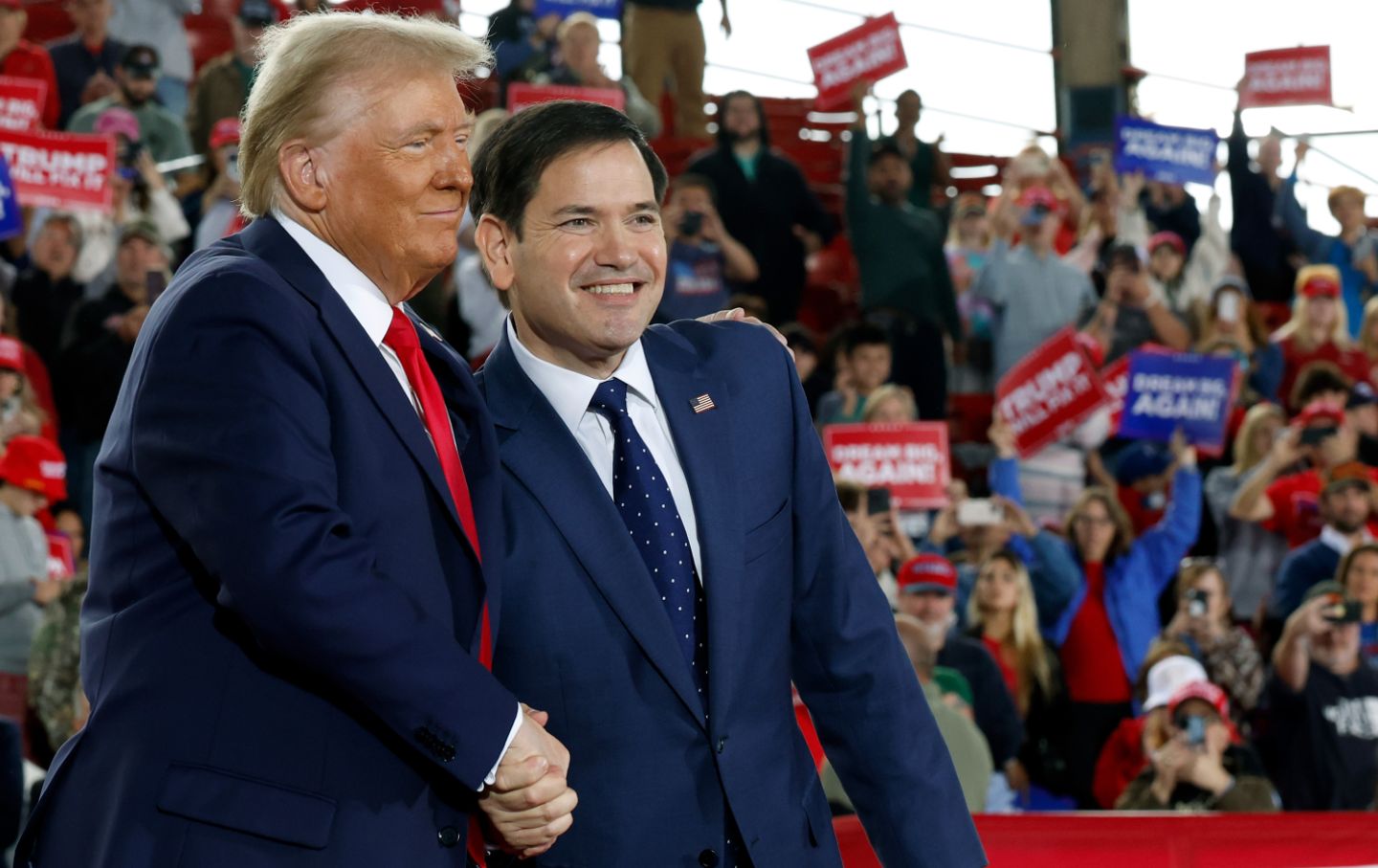
Donald Trump’s Foreign Policy Will Be Chaos First, Not America First Donald Trump’s Foreign Policy Will Be Chaos First, Not America First
His team of cronies includes establishment hawks and cranky outsiders who are more likely to deliver global anarchy than world peace.
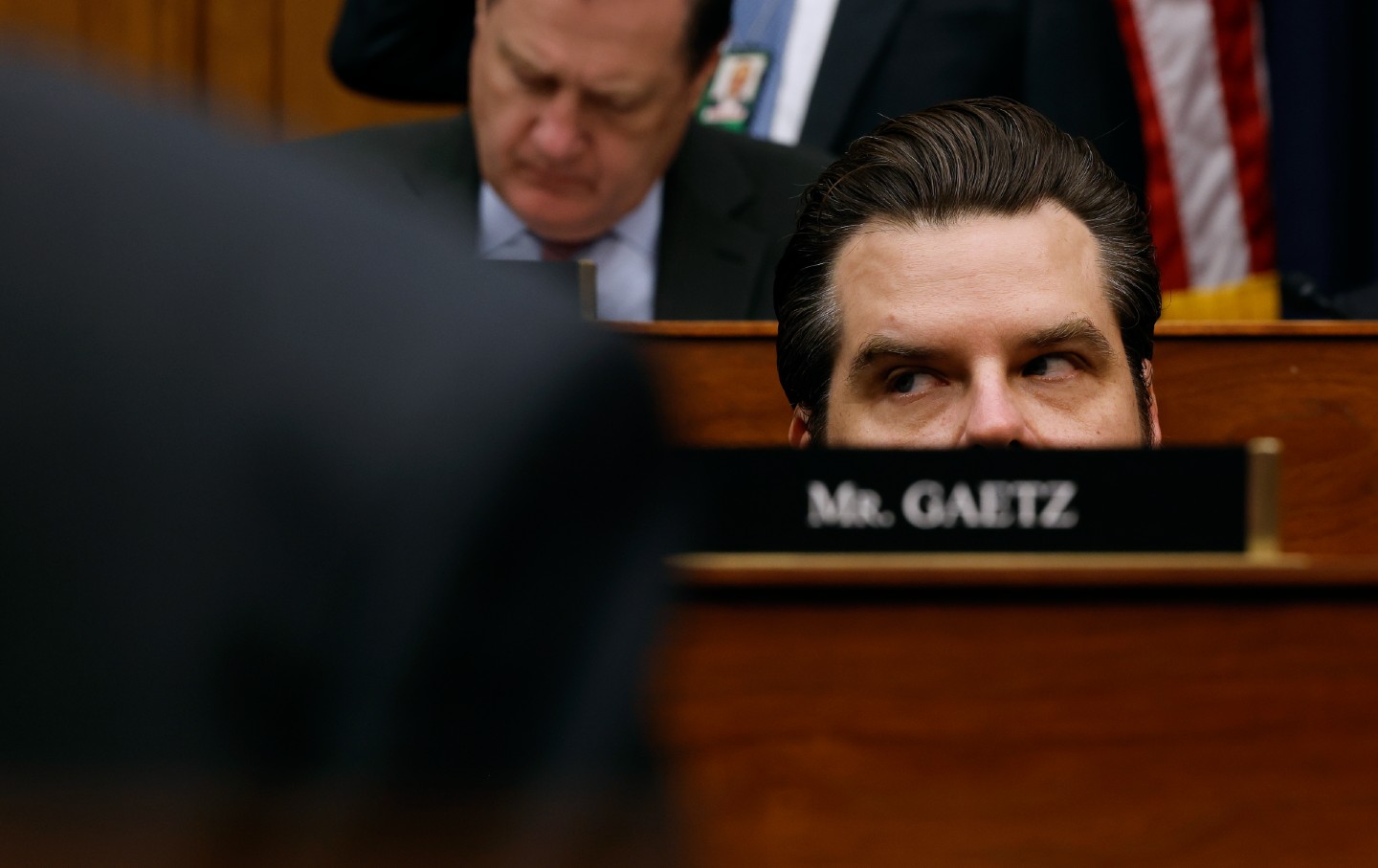
Donald Trump Is Waging a Shock-and-Awe War Against His Own Senate Donald Trump Is Waging a Shock-and-Awe War Against His Own Senate
By nominating Matt Gaetz and other dangerous cronies, the president-elect is testing congressional servility.
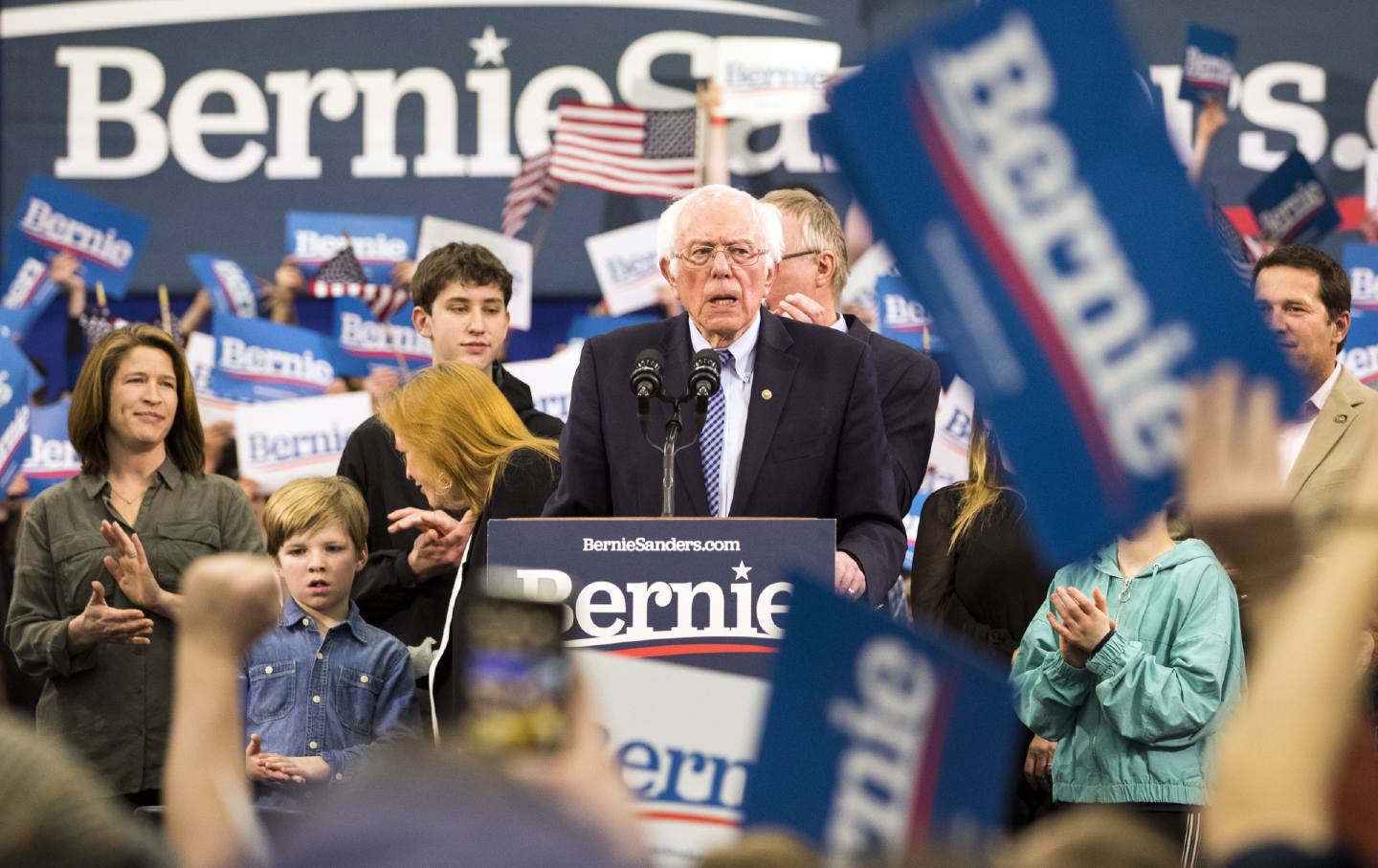
Bernie Sanders Is Right: Democrats Have Abandoned the Working Class Bernie Sanders Is Right: Democrats Have Abandoned the Working Class
The party chased former Republicans and rich donors, while alienating the working-class majority.
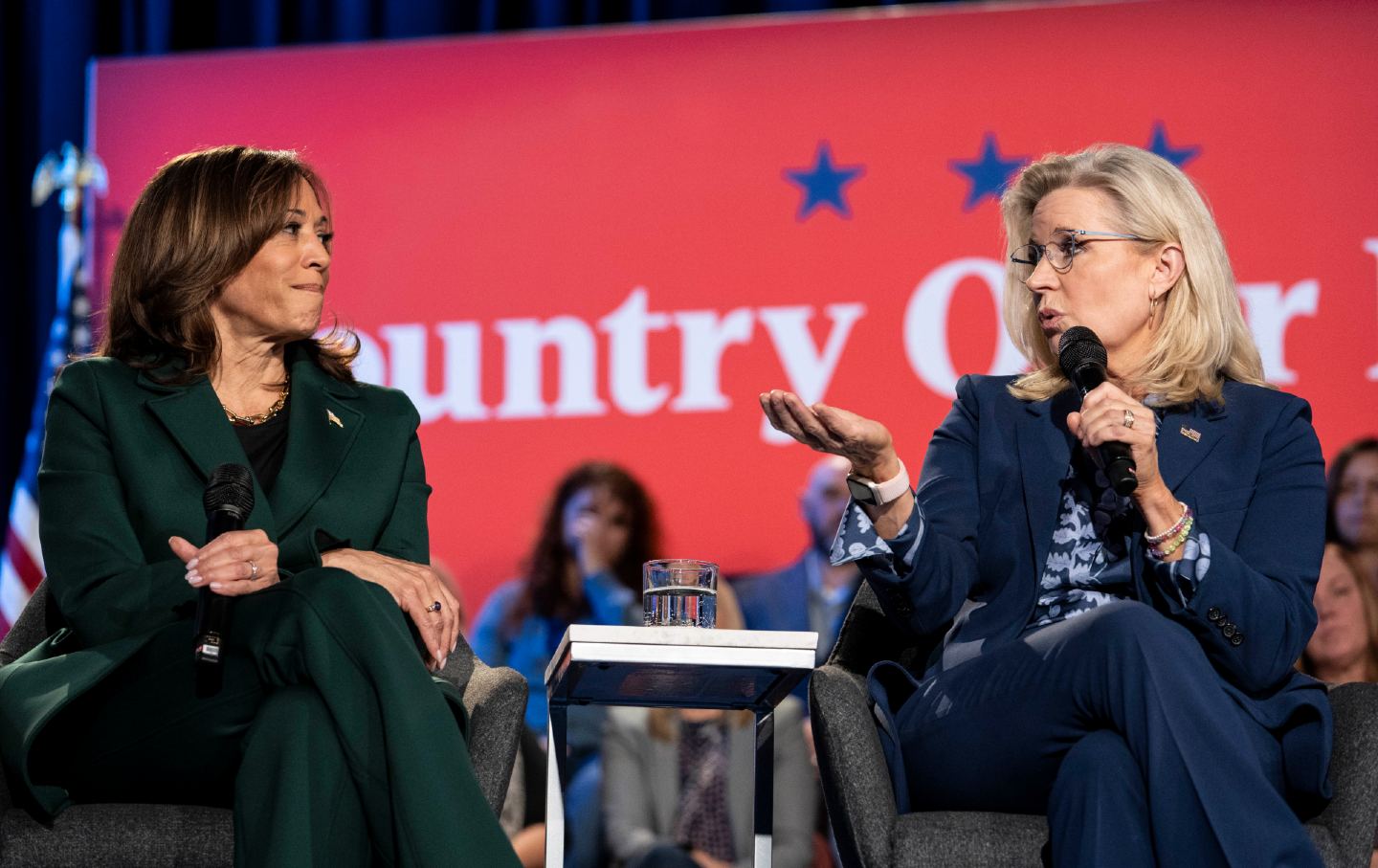
This Time We Have to Hold the Democratic Party Elite Responsible for This Catastrophe This Time We Have to Hold the Democratic Party Elite Responsible for This Catastrophe
Trump won because the opposition party is committed to ancien régime restoration in a country that desperately wants change.
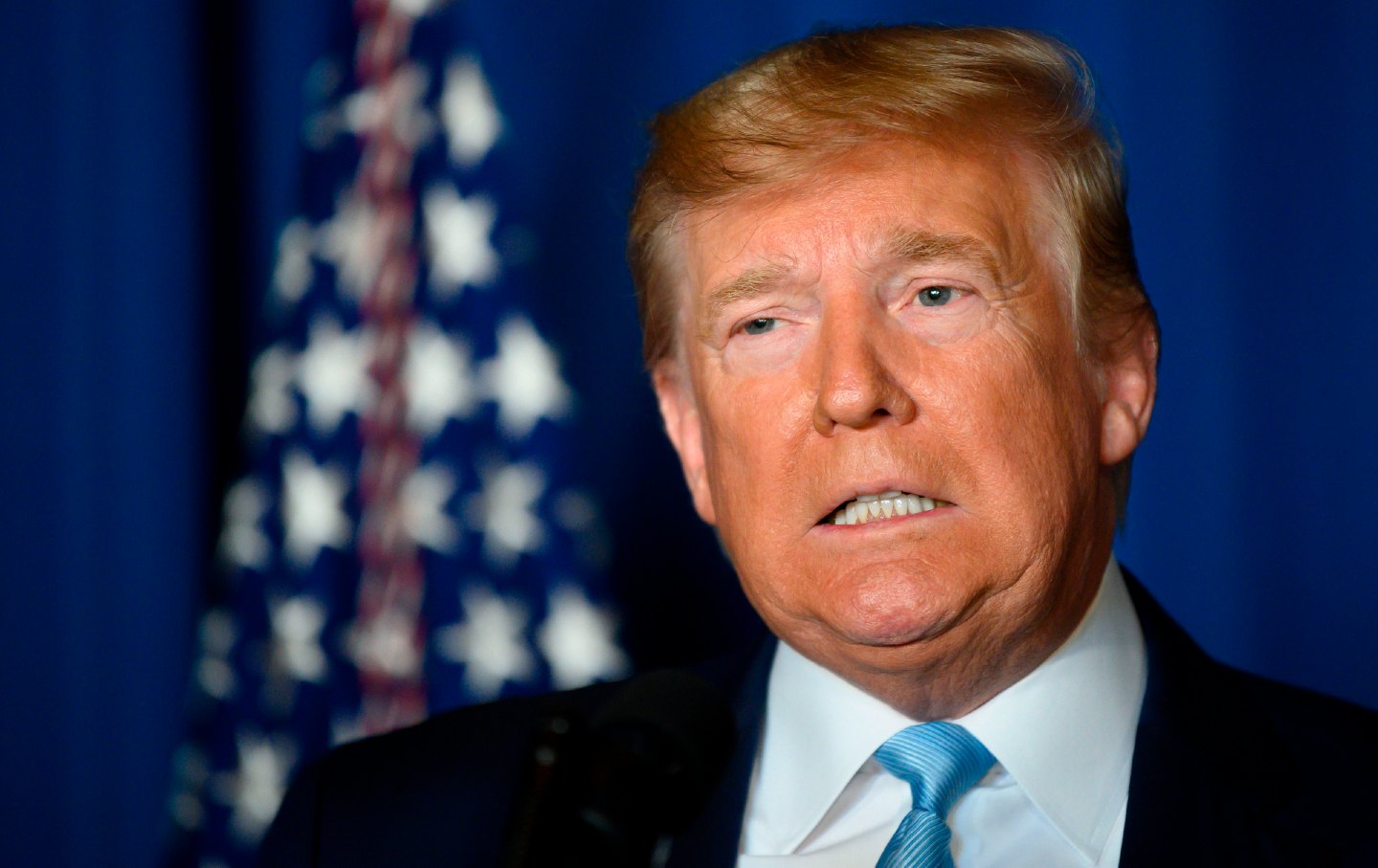
Trump’s Anti-War Charade Deserves a Challenge Trump’s Anti-War Charade Deserves a Challenge
It’s a grave mistake for Democrats to let Trump be the only voice expressing revulsion at militarism.
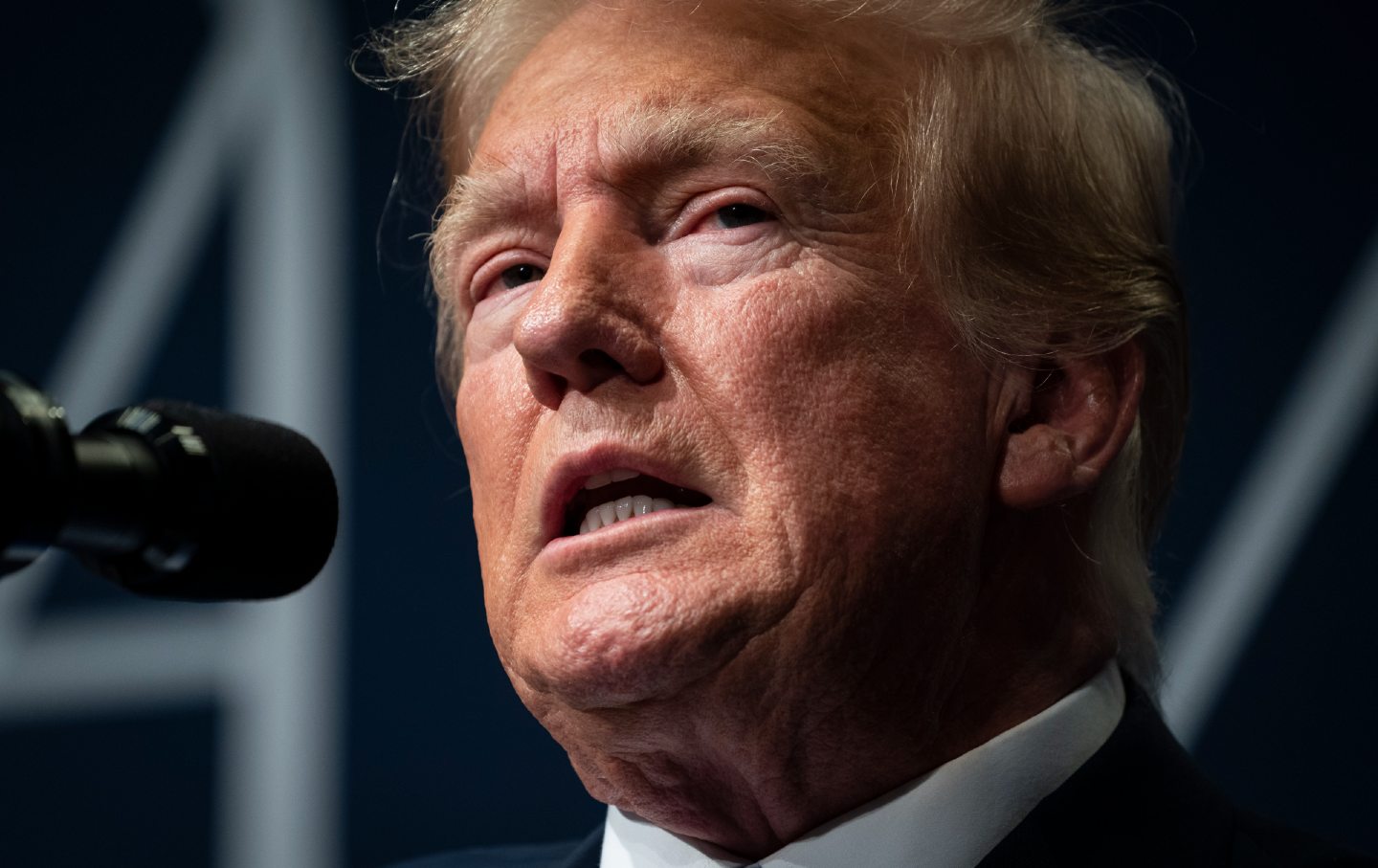
Donald Trump Makes American Women an Offer They Can’t Refuse Donald Trump Makes American Women an Offer They Can’t Refuse
The former president wants to turn gender relations into a protection racket.


